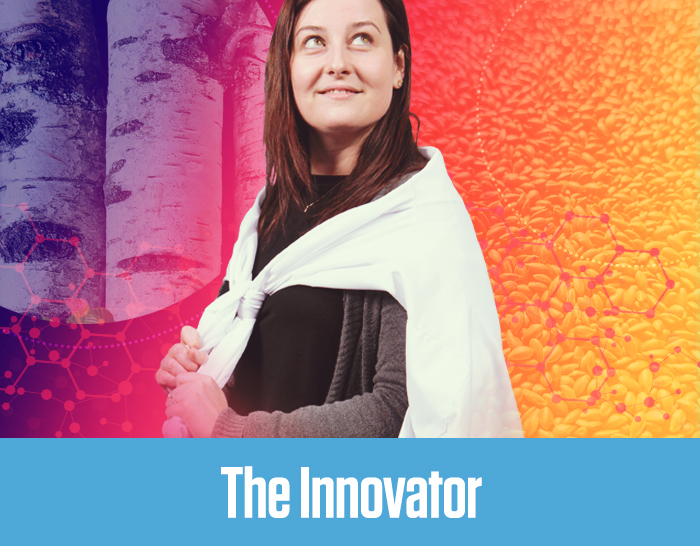Melissa Gordon '11, assistant professor of chemical and biomolecular engineering

Inspired by nature, Gordon designs new polymeric materials using molecular-level building blocks. She designs these materials for applications ranging from self-healing “smart” polymers for longer material lifespan to bio-based plastics for improved sustainability.
Gordon developed a polymer system that responds to mechanical force. Most materials weaken when subjected to mechanical forces. When the force is applied to her polymer system, it strengthens and undergoes a “healing” reaction. “This response is almost like how exercise strengthens bones,” says Gordon.
In another project, Gordon is working with students and in collaboration with researchers at Rowan University to develop safer and more sustainable alternatives to petroleum-based plastics. Gordon is working on producing a marketable, scalable plastic from birch bark. Specific chemical building blocks extracted from the bark are purified, reacted, and cured in molds overnight. Small rectangular amber-colored pieces that look and feel like hard durable plastic are the end result.
“The materials show strong mechanical properties and thermal stability,” properties that are important for plastics, says Gordon. The work was recently published in ACS Sustainable Chemistry and Engineering.
In collaboration with researchers at Lafayette and Smith College, Gordon also is creating a bio-based wood glue from flax that’s showing great promise. In its raw form, before a chemical reaction modifies the oil into an adhesive, the gooey substance resembles raw honey in appearance and texture. The glue itself sets up in about 10 minutes.
A plant-based glue is less harmful than traditional petroleum-based glue, which lingers in the soil after discarded particleboard, fiberboard, and plywood decay. A safe bio-based glue that’s biodegradable decomposes with the wood.
Gordon was drawn to these projects because of her concern with the growing challenges associated with single-use and disposable plastic and petroleum-based products. “It’s a problem that affects all of us; it’s good to work collaboratively with other people on this research,” she says. “I enjoy working with and learning from others.”
Read about other STEM Stars.
